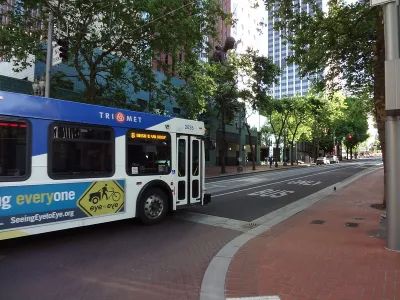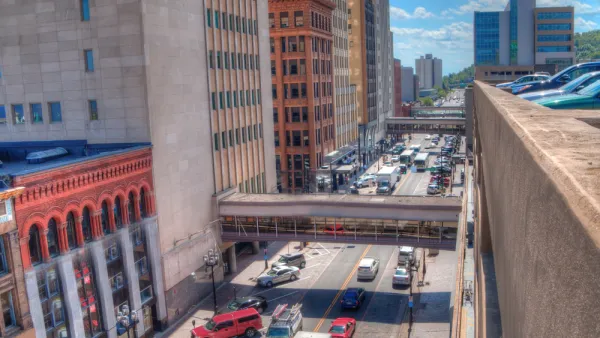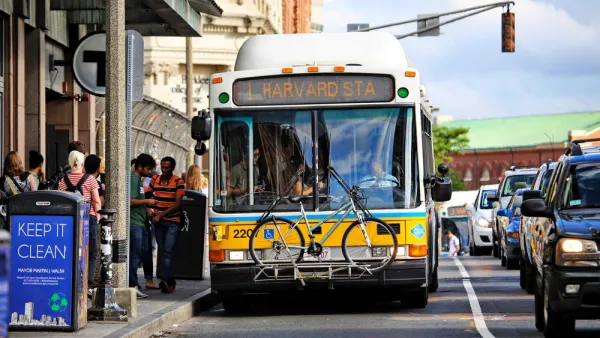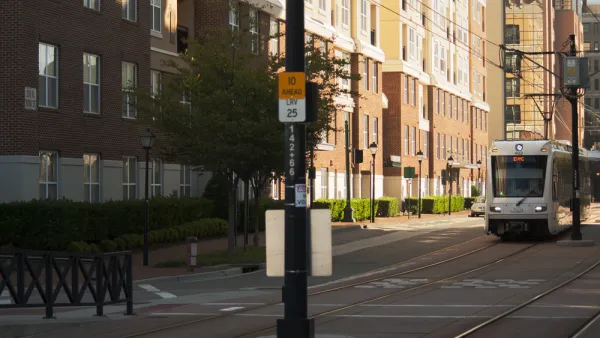Portland is redesigning its bus system to respond to the changing patterns of the post-pandemic world—with twin goals of increasing ridership and improving equity.

TriMet launched redesigned bus service in SW Portland on August 27, the first phase of the ongoing “Forward Together” service redesign.
“Forward Together is focused on equity and will make it easier for more people to connect with opportunities throughout the region,” according to an article published by Mass Transit magazine. “It moves some service from areas with low ridership and higher incomes to those where there are more people with lower incomes, who rely on transit to make important daily connections such as getting to work, school, health care and other services.”
“In the first bulk delivery of improvements and adjustments, TriMet is expanding its Frequent Service network and making it easier and more convenient to ride, with buses arriving more often at more times and on more days,” according to the article, which includes a lot more specifics for the plan.
TriMet touted Forward Together as one of its responses to an unprecedented driver shortage—a common issue in transit agencies around the country in the wake of the pandemic. But an article by Jarrett Walker (Walker’s firm consulted on the project with TriMet and is based in Portland) on the Human Transit blog notes that by the time the plan is fully implemented, TriMet will be operating 10 percent more service than in 2019.
According to Walker, the goal of more equitable service was pursued coequal with increased ridership. “The plan includes a major expansion of the Frequent Network in high demand areas, and new local routes in underserved suburban areas with large low-income populations,” according to Walker. “Where TriMet was running services that are justified neither by ridership nor by equity, the plan reduces or even eliminates those services.”
FULL STORY: TriMet implementing first Forward Together service changes starting Aug. 27

National Parks Layoffs Will Cause Communities to Lose Billions
Thousands of essential park workers were laid off this week, just before the busy spring break season.

Retro-silient?: America’s First “Eco-burb,” The Woodlands Turns 50
A master-planned community north of Houston offers lessons on green infrastructure and resilient design, but falls short of its founder’s lofty affordability and walkability goals.

Delivering for America Plan Will Downgrade Mail Service in at Least 49.5 Percent of Zip Codes
Republican and Democrat lawmakers criticize the plan for its disproportionate negative impact on rural communities.

Test News Post 1
This is a summary

Test News Headline 46
Test for the image on the front page.

Balancing Bombs and Butterflies: How the National Guard Protects a Rare Species
The National Guard at Fort Indiantown Gap uses GIS technology and land management strategies to balance military training with conservation efforts, ensuring the survival of the rare eastern regal fritillary butterfly.
Urban Design for Planners 1: Software Tools
This six-course series explores essential urban design concepts using open source software and equips planners with the tools they need to participate fully in the urban design process.
Planning for Universal Design
Learn the tools for implementing Universal Design in planning regulations.
EMC Planning Group, Inc.
Planetizen
Planetizen
Mpact (formerly Rail~Volution)
Great Falls Development Authority, Inc.
HUDs Office of Policy Development and Research
NYU Wagner Graduate School of Public Service





























